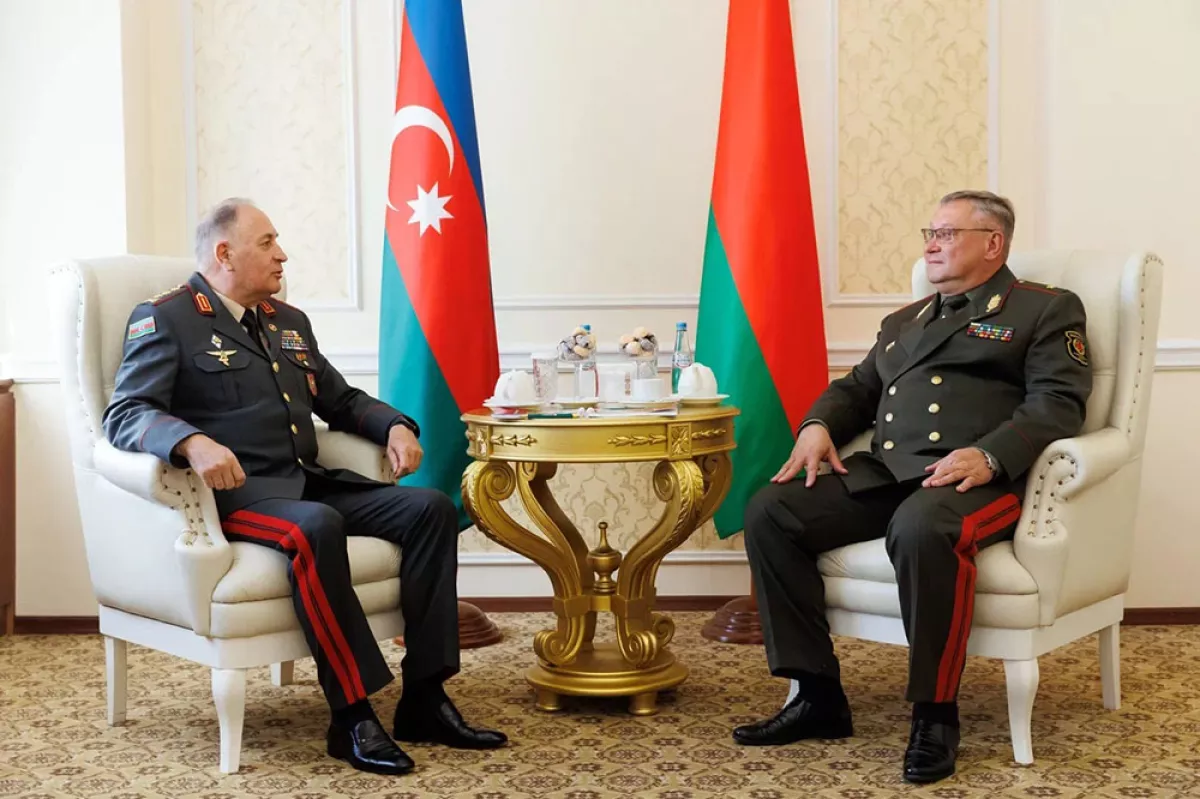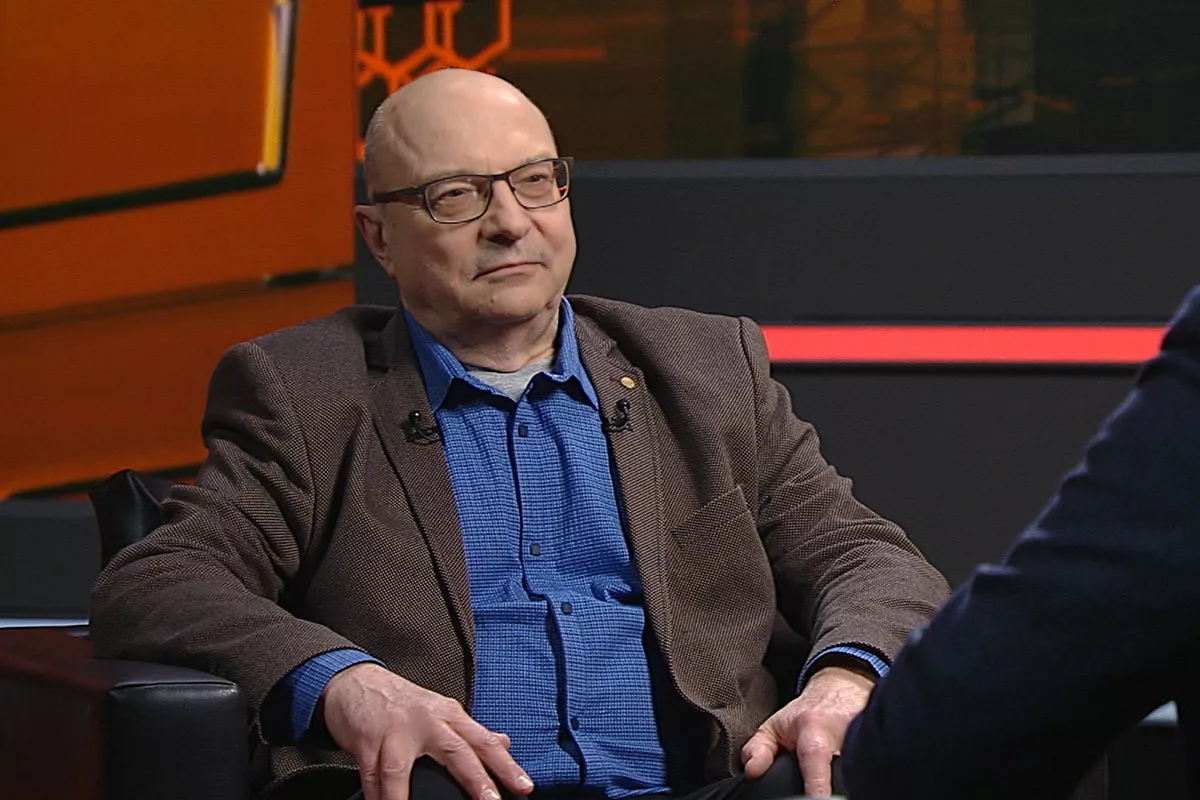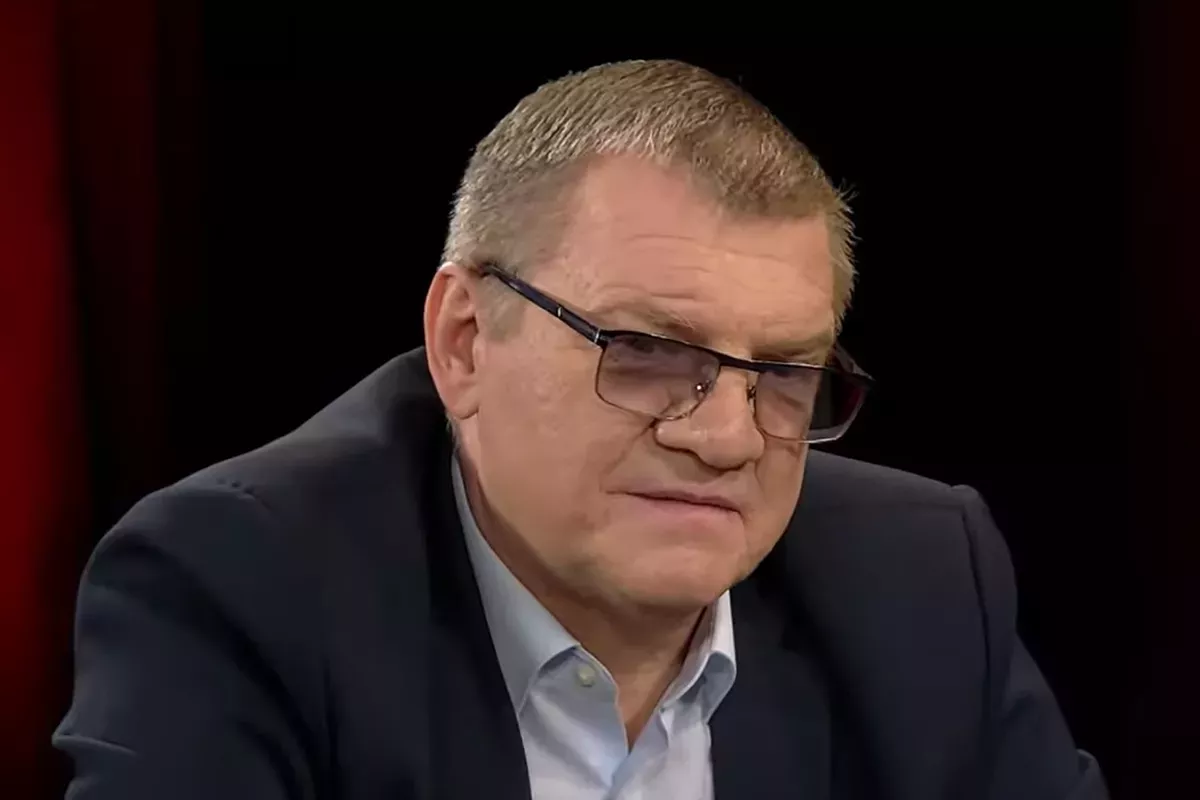Azerbaijan–Belarus: from military cooperation to regional security Expert opinions on Caliber.Az
Baku and Minsk are set to expand military-technical cooperation, a key topic during the visit of First Deputy Minister of Defence and Chief of the General Staff of the Azerbaijani Army, Colonel-General Karim Valiyev, to Belarus. On 22 September, he met with Chief of the General Staff of the Armed Forces and First Deputy Minister of Defence of Belarus, Major General Pavel Muraveiko.
During both bilateral and extended meetings, the sides discussed the further development and prospects of military cooperation, as well as issues of regional security. An in-depth exchange of views was conducted on topics of mutual interest.

The prospects for Azerbaijan–Belarus military cooperation were further analysed by Caliber.Az with Belarusian military experts and analysts.
According to Belarusian defence and military-industrial complex expert Alexander Alesin, the main focus of the talks between Belarusian and Azerbaijani officials was likely the maintenance and operational readiness of the equipment Belarus had supplied to Azerbaijan in previous years.

“All of this comes down to the fact that, whether in military operations or peacetime, equipment undergoes wear and tear, and each component has a finite service life. Over time, this creates the need for preventive maintenance, repairs, and modernisation of both military and dual-use equipment. I believe that when Belarus supplied Azerbaijan with the relevant systems, military hardware, and dual-use equipment, the agreement included provisions for their maintenance, technical servicing, and upgrades throughout their lifecycle. I expect the Belarusian side to honour these commitments, even if there are potential frictions with Russia. This primarily concerns the maintenance of electronic warfare systems as well as products from the Minsk plant, such as the MAZ-6317 and MAZ-5316 wheeled chassis, which serve as platforms for Azerbaijani military equipment,” the expert explained.
Regarding the supply of new weaponry, Alexander Alesin believes that the focus is primarily on electronic warfare systems against drones and radar systems produced in Belarus.
“I believe we are not talking about lethal weaponry, such as air defence systems or MLRS, because that could create friction with Moscow, and Lukashenko is unlikely to want to aggravate relations with Putin on this issue,” Alesin noted.

Meanwhile, Alexander Tikhansky, professor at the Russian Academy of Military Sciences and a well-known Russian-Belarusian military-political analyst, is confident that Belarus and Azerbaijan are actively strengthening military cooperation. He emphasises that the two countries are discussing the current state of affairs and ways to intensify bilateral military cooperation in areas of mutual interest.
“On September 22, Chief of the General Staff of the Azerbaijani Armed Forces, Colonel-General Karim Valiyev, arrived in Belarus at the invitation of his Belarusian counterpart, Major-General Pavel Muraveiko. I would note that this visit continues the active military cooperation between the two countries. In September 2024, Muraveiko visited Azerbaijan to discuss collaboration between the defence ministries. The Belarusian delegation also participated in the ADEX 2024 defence exhibition in Baku, showcasing the latest developments in weaponry,” the expert said.
According to him, Belarus–Azerbaijan military-technical cooperation is characterised by a long-term and mutually beneficial nature, political support at the highest level, and transparency within international law. The main areas of current cooperation, which can be implemented at Baku’s request, include the supply of weapons and military equipment by Minsk (air defense systems, artillery, armored vehicles, electronic warfare systems), as well as modernization and repair of military equipment, training of military personnel, exchange of expertise, joint exercises, and the joint development and production of new weapon systems.
According to the military analyst, there should be no issues with the delivery of the listed weaponry; all agreements on military-technical cooperation will be honoured by the signatories, and Moscow has never interfered in Belarus–Azerbaijan bilateral relations.
“There are the interests of the Union State, as well as the national interests of Russia and Belarus, and we clearly distinguish between them. For Azerbaijan, the full range of Belarusian defence industry products is available in export versions. Strengthening military cooperation between Belarus and Azerbaijan is an important factor in enhancing the defence capabilities of both countries and maintaining regional security,” concluded Tikhansky.








